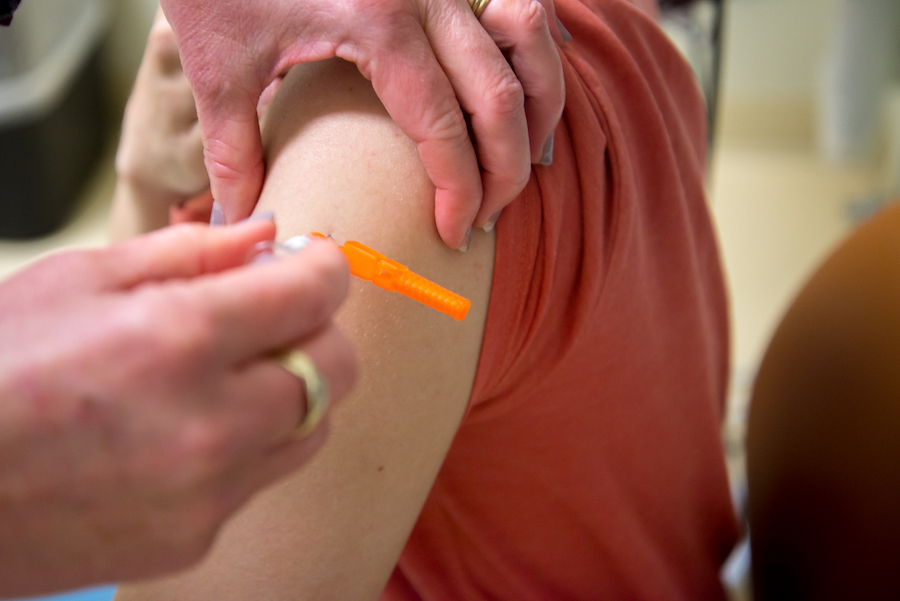
Universal vaccine under development
Every winter, healthcare providers and vulnerable populations are encouraged to receive a yearly vaccine for the flu, a disease caused by an influenza virus. The flu is highly contagious, spread through the air in droplets from sneezes and coughs or by direct contact with infected people. Previous pandemics have killed millions of people globally. With proper investigation and prediction modeling, a mix of flu strains are created annually to help inoculate millions of people worldwide from the worst effects.
Dr. Dean Blumberg is the chief of pediatric infectious diseases at the UC Davis Children’s Hospital. Blumberg is involved in childhood vaccination policies as well as research on the effectiveness of vaccine treatments.
“Every year, the CDC and WHO use data from currently circulating influenza strains to try to predict which ones need to be in the seasonal vaccines,” Blumberg said in an email interview. “This decision generally is made in April for the influenza vaccine that becomes available in the Fall in the US. Sometimes the strains included in the vaccine are a good match, like last season. But sometimes the predictions are off, and then there is less protection from the vaccine.”
One of the reasons annual vaccines are necessary for influenza is the quick rate of mutation of the viral surface proteins. Researchers believe this high mutation rate helps the virus move between host species, enabling it to infect birds, pigs and other organisms. A universal flu vaccine being tested by Oxford researchers would protect against all types of the flu virus by stimulating an immune response to some of the particles within the viral core, which stays relatively unchanged, rather than the shifting surface proteins.
One anonymous nurse reached for comment said that people should try to receive their flu vaccine before the Thanksgiving holidays. Large gatherings indoors during cold weather is a prime opportunity for a flu infection to ravage a community. Flu vaccines are available at the Student Health and Wellness Center at the UC Davis campus as well as at pharmacies around town such as CVS and Rite Aid.
The populations most vulnerable to infection are children and the elderly.
“In small children, the immune system is immature and developing, and this leads to increased deaths in children less than 6 months of age,” Blumberg said. “On the other end of the spectrum, the immune system gets weaker in older adults. So although adults >65 years of age account for only 15% of population in the US, this group accounts for more than 90% of the deaths due to influenza.”
Certain people are concerned vaccines may be unsafe, especially to children. A Facebook group called Californians for Vaccine Choice argues against mandatory vaccinations for children on the basis of parental rights over their children. One popular comment from October said people can “get poisoned by the ingredients of the Influenza vaccine.”
An anonymous nurse reached for comment said she has never seen a “vaccine injury” in 20 years of healthcare service.
According to Blumberg, allergic reactions occur in less than one in a million doses.
“All recommended influenza vaccines are non-live vaccines, so they cannot cause infections,” Blumberg said. “There is no scientific evidence that vaccines cause neurodevelopmental disorders. All vaccine ingredients have been carefully studied by the FDA and CDC.”
The Centers for Disease Control considers the development of vaccines to be one of the greatest achievements of public health. Vaccines help prevent disease development and transmission, and are far cheaper than medical treatments and the loss of productivity associated with being sick, making them a cost-effective public health intervention for people worldwide. New developments could advance a universal flu vaccine and take away the need for prediction in medicine.
Written By: George Ugartemendia — science@theaggie.org



